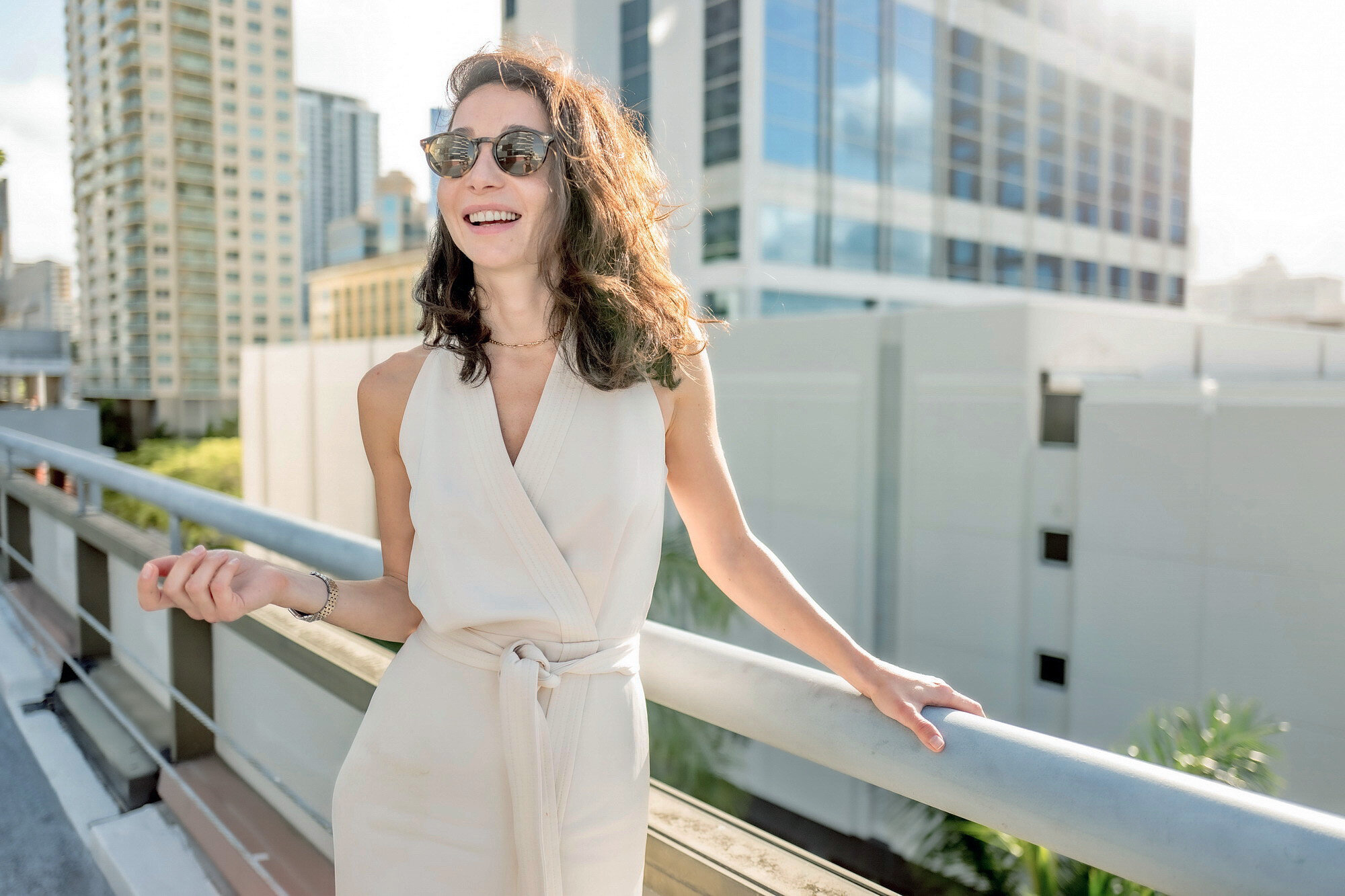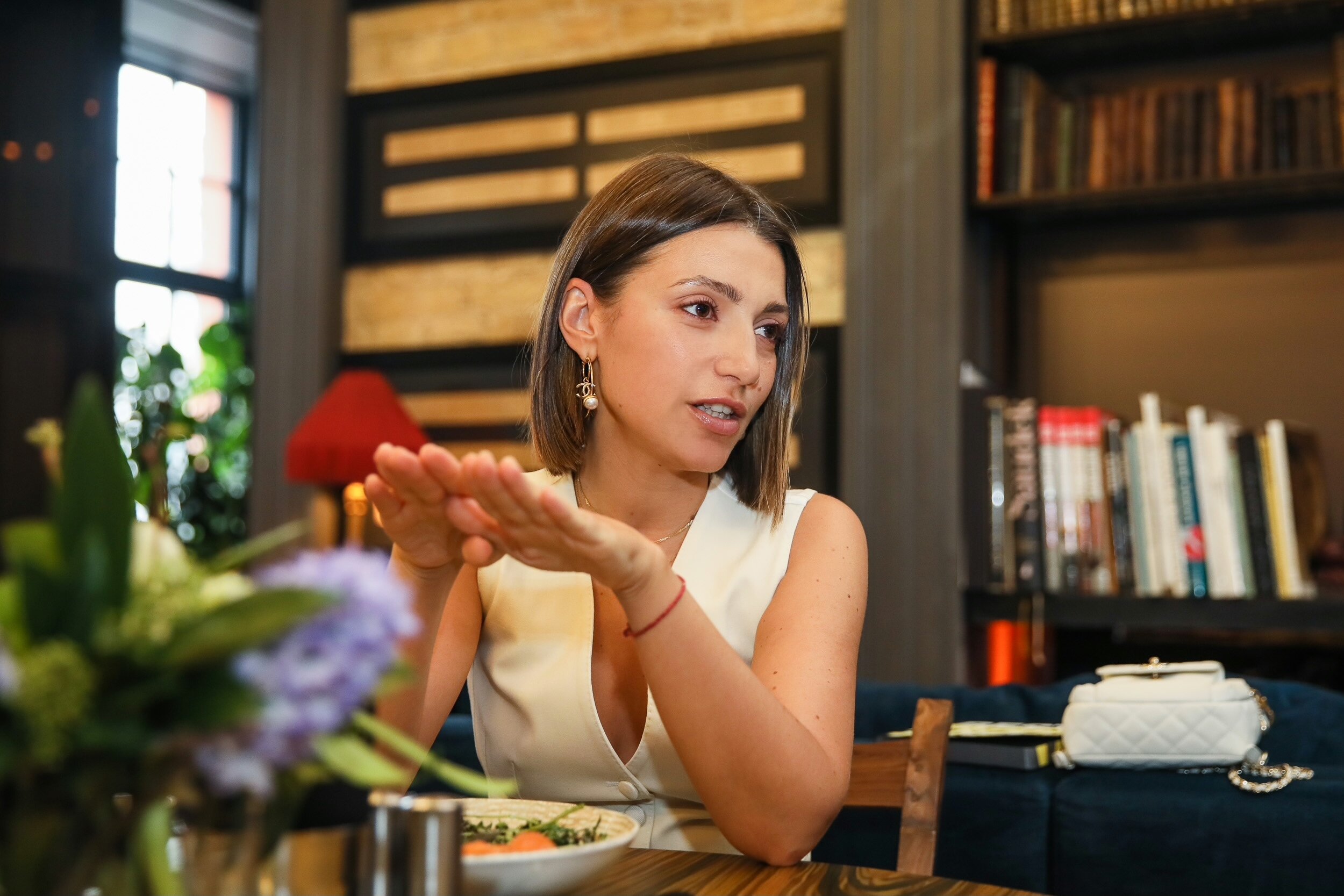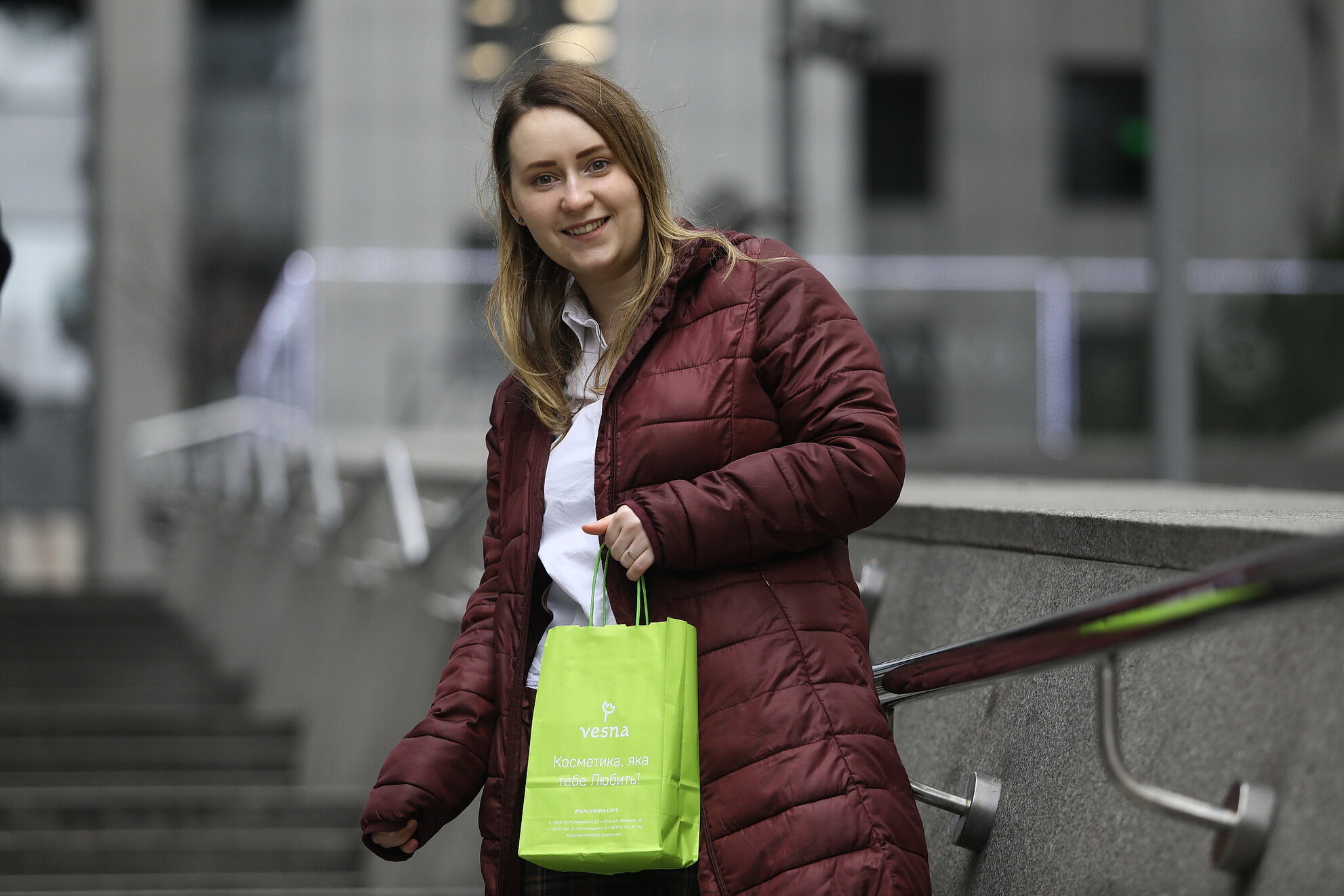Only 3% of Ukrainian companies with the biggest revenue are owned exclusively by women.
According to the recent research by the YouControl analytical platform, the situation has been shifting over the past decade, but the progress is dramatically slow.
With the business world being dominated by men, the stories of those female entrepreneurs who broke through despite the gloomy statistics are all the more essential – to inspire others by example, laying the foundation for future gender gap decrease in entrepreneurship.
Here are four stories of four Ukrainian women that made it in the business world.
Elena Batyreva, 30
Enmonetre clothing brand
Elena Batyreva founded her clothing brand Enmonetre to reveal female beauty through outfits. Now her talent is behind many elegant looks at weddings and other events.
It’s her determination that helped her succeed.
Batyreva had her first work experience at 15 as a seller of plastic windows. Then she worked as a manager in the restaurant business. None of that was fulfilling though.
The very first dress she ever made was for her 25th birthday. It was a piece with an open back that became both the start of Enmonetre and the trademark of the brand.
“An open back is about accepting yourself and shifting from standards,” Batyreva told the Kyiv Post. “It’s a very intimate detail.”
She founded the brand in 2018 having just $3,000 in savings. Four years later, her workshop in Kyiv welcomes customers daily, completing about 80 individual orders every month.
They are delicate silky and tulle dresses, fitting corsets, oversized suit jackets and coats. The recent addition to the brand’s menu is silky pajamas with feathers for women to look elegant even during the quarantine at home.
Quality over quantity is one of Batyreva’s key principles, that’s why she keeps the production small but sufficient.
“Increasing the volume (of production) does not always bring greater results,” she says.
Among Enmonetre’s fans are local star entrepreneurs, bloggers and celebrities like singer Zlata Ognevich. But Batyreva says that crafting wedding dresses is a special honor that comes with great responsibility.
The designer works hard to satisfy her clients. But all that effort pays off the moment they put on her dresses during the fitting and don’t want to take them off.
“For (moments like that), you want to create more and more,” she says.

Yana Ibragimova, the co-founder of the private CAPS business school and the ISAIA clothing boutique, poses for a photograph on Feb. 28, 2021, in Miami, Florida. (Phil Lee)
Yana Ibragimova, 35
CAPS business school, ISAIA clothing boutique
Yana Ibragimova’s poor performance at school was a big blow for her academic parents. For a rebellious child like her, it was a way to protest the dictating system she didn’t enjoy.
“They (parents) taught me that I shouldn’t dream far and beyond my capabilities,” Ibragimova told the Kyiv Post.
Ironically, Ibragimova eventually went on to become a co-founder of a prestigious school – first, for civic leaders, later – for entrepreneurs.
Born in Baku, Azerbaijan, Ibragimova moved to Ukraine with her family as a child.
She started waiting tables at 16, embracing adult life. By 18, she came to a realization that business was a perfect field for her freedom-loving nature.
As a fan of fashion, Ibragimova’s first entrepreneurial experience was opening a clothing showroom with several partners. Later, she co-founded luxurious apparel boutiques ISAIA and Billionaire Couture under franchise agreements. Kyiv’s ISAIA grew to become the international company’s biggest franchise store in Eurasia, according to Ibragimova.
After the 2013-2014 EuroMaidan Revolution that ousted ex-President Viktor Yanukovych, Ukraine needed reforms. But Ibragimova realized there was a shortage of people who could deliver them.
Along with Georgian ex-official and reformer Khatia Dekanoidze, Ibragimova started a private educational institution CAPS (Civil and Political School) to raise a new generation of Ukrainian leaders.
Having professors from some of the world’s best schools, like Harvard and Stanford, CAPS had 600 graduates over the first four years.
Ibragimova says that many of the school’s alumni found it hard to change the conservative state institutions in Ukraine. That’s why Ibragimova decided to turn CAPS into a business school in 2019.
“If it is not possible to change the public sector, then the next influential sector to try is corporations and business,” she says.
Ibragimova recently stepped down as the CAPS head but she still co-owns it. She also co-owns ISAIA.
Once a rebellious kid who didn’t want to study, Ibragimova uses every opportunity to learn now. She is currently enrolled in the Stanford University’s business program aiming to become a better leader in private education.
“I see a way to change both systems and people through this tool and I want to know everything about it,” Ibragimova says.

Тanya Izmaylova, the founder of Eat Easy healthy food company, talks to the Kyiv Post on March 1, 2021, in Kyiv. (Volodymyr Petrov)
Тanya Izmaylova, 36
Eat Easy food company
Tanya Izmaylova is no stranger to life’s challenges.
She started working at 14. Her family had just moved to Moscow from their hometown Donetsk and she needed the money.
By the time she moved to Kyiv at 19, she had already had two years of experience as a branch manager in a real estate company in Moscow.
In the Ukrainian capital, she continued doing what she already proved to be good at. Just a year later, Izmaylova and a partner launched a company that rented out apartments. Their starting budget was just $2,000. It became the first company in Kyiv to reach an agreement with the Booking online service that had cooperated only with hotels prior to that, Izmaylova says.
Even though the business was going well, she started doubting it.
“Everything was very predictable,” Izmaylova told the Kyiv Post. “I knew everything in advance.”
She wanted to launch something fundamentally new but couldn’t decide on the direction. So she made a list of things she loved. One of them was “eating tasty goodies” that won’t affect her waistline. Then she did some research and realized there was no healthy food delivery in Kyiv.
“And I thought: ‘Why not create it myself?” she says.
That’s how Eat Easy was born. Launched in 2014, it sells healthy snacks, entrees, desserts and drinks. Promoting a whole food diet, Eat Easy treats its customers to whole wheat pasta, sandwiches with kimchi, a variety of enticing desserts and sugar-free lemonade and kombucha.
The company rides the healthy lifestyle trend and is quite a hit with nearly 30,000 followers on Instagram. Its food can be delivered by the company, picked up at their to-go spots or purchased at dozens of collaborating restaurants and stores including one of the biggest supermarket chains, Silpo.
Izmaylova moved to split the ownership of Eat Easy with her ex-husband. Though she still is the company’s co-owner, she has recently quit all the management responsibilities.
Izmaylova is now developing an educational course on self-discovery to help others find their strongest suit and turn it into success.
But she says that’s just one of the many yet unannounced projects she’s planning to launch this year.

The co-founder of the Vesna cosmetics producer Victoria Maslova poses for a photograph as she holds her company’s branded bag on Feb. 28, 2021, in Kyiv. (Oleg Petrasiuk)
Victoria Maslova, 22
Vesna cosmetics producer
At just 22, Victoria Maslova is a successful business co-owner.
Six years ago, she teamed up with her mother, Inna Zalizniuk, to produce natural skincare products – something they both failed to find on the store shelves.
At first, they made skincare products for their close circle.
“At first it was just for us, we didn’t have an investor, there were no entrepreneurs in the family, there was no business plan,” Maslova told the Kyiv Post.
As the demand was growing and the feedback kept being positive, the two expanded the number of offered goods adding various creams, serums, scrubs, shampoos and conditioners.
A small production eventually grew into a big company they called Vesna (“Spring” in Ukrainian). It now produces 500 items a week, all made of plants and other natural ingredients using no chemicals.
When the company once gave a tour in their production to a group of children, they tasted Vesna’s face creams.
“Because they are all-natural,” Maslova says. “And very tasty,” she jokes.
Vesna now offers over 120 cosmetics products, which it sells through a website, its two stores in Bucha, Kyiv Oblast, one in the western city of Lviv and multiple eco-shops in Kyiv.
Maslova says though the family didn’t have a plan or a strategy to start with, they always put their heart into the business and that might be the biggest ingredient behind their achievements.
“We are as authentic as the products we are creating,” Maslova says.
